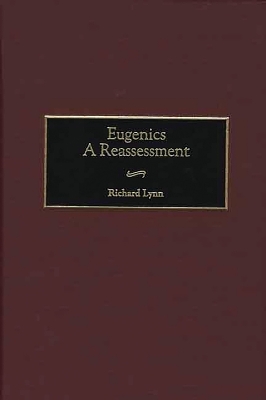Lynn argues that the condemnation of eugenics in the second half of the 20th century went too far and offers a reassessment. The eugenic objectives of eliminating genetic diseases, increasing intelligence, and reducing personality disorders he argues, remain desirable and are achievable by human biotechnology. In this four-part analysis, Lynn begins with an account of the foundation of eugenics by Francis Galton and the rise and fall of eugenics in the twentieth century. He then sets out historical formulations on this issue and discusses in detail desirability of the new eugenics of human biotechnology. After examining the classic approach of attempting to implement eugenics by altering reproduction, Lynn concludes that the policies of classical eugenics are not politically feasible in democratic societies.
The new eugenics of human biotechnology--prenatal diagnosis of embryos with genetic diseases, embryo selection, and cloning--may be more likely than classic eugenics to evolve spontaneously in western democracies. Lynn looks at the ethical issues of human biotechnologies and how they may be used by authoritarian states to promote state power. He predicts how eugenic policies and dysgenic processes are likely to affect geopolitics and the balance of power in the 21st century. Lynn offers a provocative analysis that will be of particular interest to psychologists, sociologists, demographers, and biologists concerned with issues of population change and intelligence.
- ISBN10 0313000638
- ISBN13 9780313000638
- Publish Date December 2001 (first published 30 June 2001)
- Publish Status Active
- Publish Country US
- Publisher ABC-CLIO
- Imprint Praeger Publishers Inc
- Format eBook
- Pages 378
- Language English
